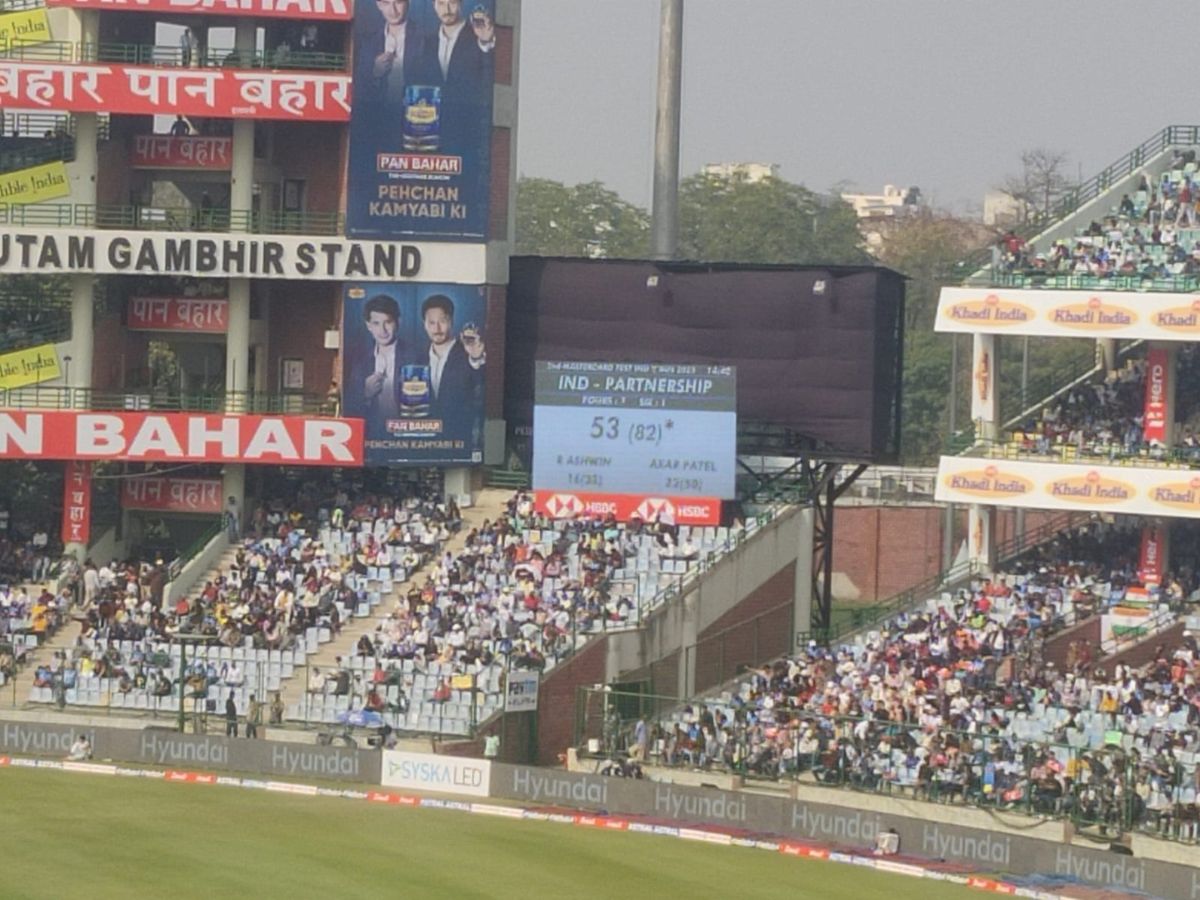
The Board of Control for Cricket in India (BCCI) mandates that the big manual scoreboard should work in all Indian cricket grounds during Test matches. It was there at Nagpur in the first Test last week, and will be there in Indore in the third Test in March.
The one at Ferozeshah Kotla grounds had, in fact, excited some of the visiting Australians, who are used to seeing the giant electronic scoreboards in their country. Only Adelaide Oval, among all the main Test grounds in that country, has a manual scoreboard nowadays. The WACA in Perth doesn’t hold Tests nowadays.
One Australian journalist, Peter J Lalor, made a video on Thursday and even posted it online, the day before the Test began, with all the freshly painted name plates and numbers being kept ready by the side.
However, the excitement didn’t last long as the Kotla scoreboard could not be operated during the match even though it had been ready.
“Unfortunately, those handling the in-stadia rights decided to put a small screen, for ads and live match coverage, in front of the giant manual scoreboard for crowd consumption. We had the manual scoreboard ready but were not able to operate,” said Delhi and District Cricket Association (DDCA) joint secretary, Rajan Manchanda.
“We will ensure we use it for the next Test whenever it is played here,” he added.
Instead, only the smaller one, used for first-class and DDCA league games and is located at one small corner, was operational along with two small electronic screens which served the purpose but with brief live scores.
As one state association official pointed out, “The reason why BCCI mandates manual scoreboard is because you cannot trust electronic scoreboards. Assuming electricity goes out, it will lead to inconvenience as the match will continue to proceed but the scoreboard won’t work.”
Duck for Pujara on his 100th
Cheteshwar Pujara was greeted with a loud cheer and a standing ovation when he walked in to take guard in his 100th Test match but the right-handed batsman’s stay was anything but memorable.
The India No. 3 survived a leg-before decision on his very second ball after the wary Australians refused a review, having wasted two early in the day’s first half hour.
When replays on the screen showed that the umpire had erred and the visiting team had also made an error by not taking the review as the ball would have hit the stumps if not for the pad, the crowd let out mixed reaction – of relief and laughter at Australia’s folly.
Five balls later, however, Pujara was back in the pavilion on zero after a similar appeal on a similar looking thud on the pad was first turned down but then accepted on review by the Australians.
Pujara became the second Indian batsman after Dilip Vengsarkar to score a duck in his 100th Test.
On the principle of 'Sarvajan Hitaya, Sarvajan Sukhaya' -- Welfare for all, Happiness for all…
With hundreds reported missing in Delhi this year, this guide explains how families can use…
The case came to light after a 35-year-old woman from Panipat alleged that she had…
During the investigation, CCTV footage helped identify the suspects, according to Delhi Police
The launch took place during the inauguration of the Delhi Police Exhibition Hall at Connaught…
The 28-year-old factory owner was taken to Satyawadi Raja Harish Chandra Hospital in Delhi, while…